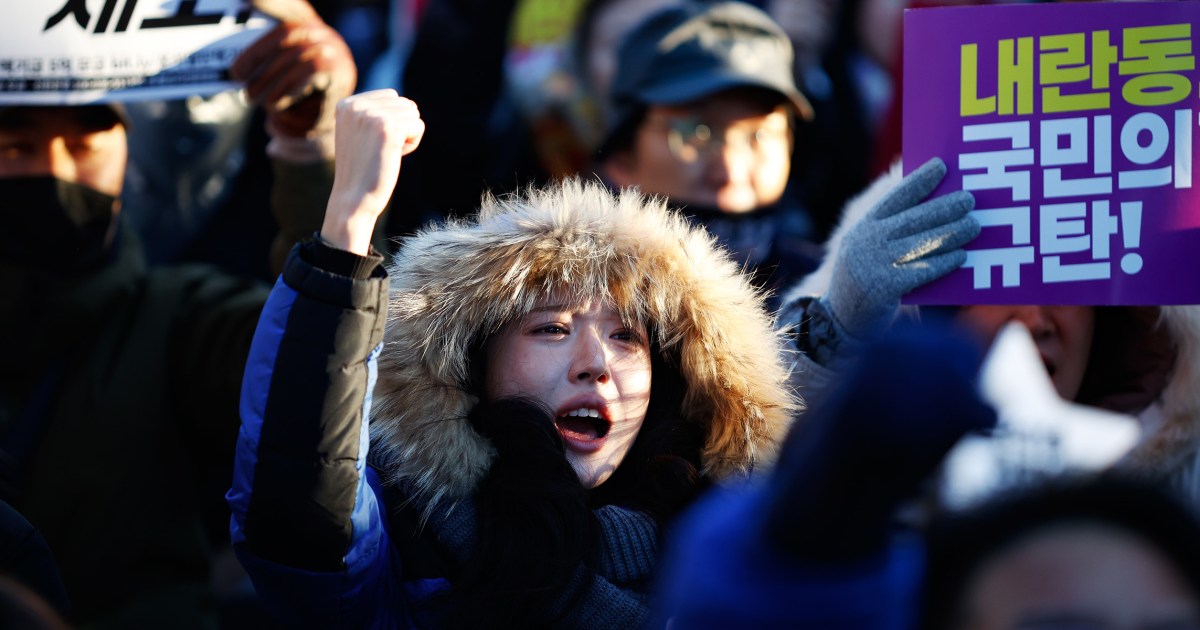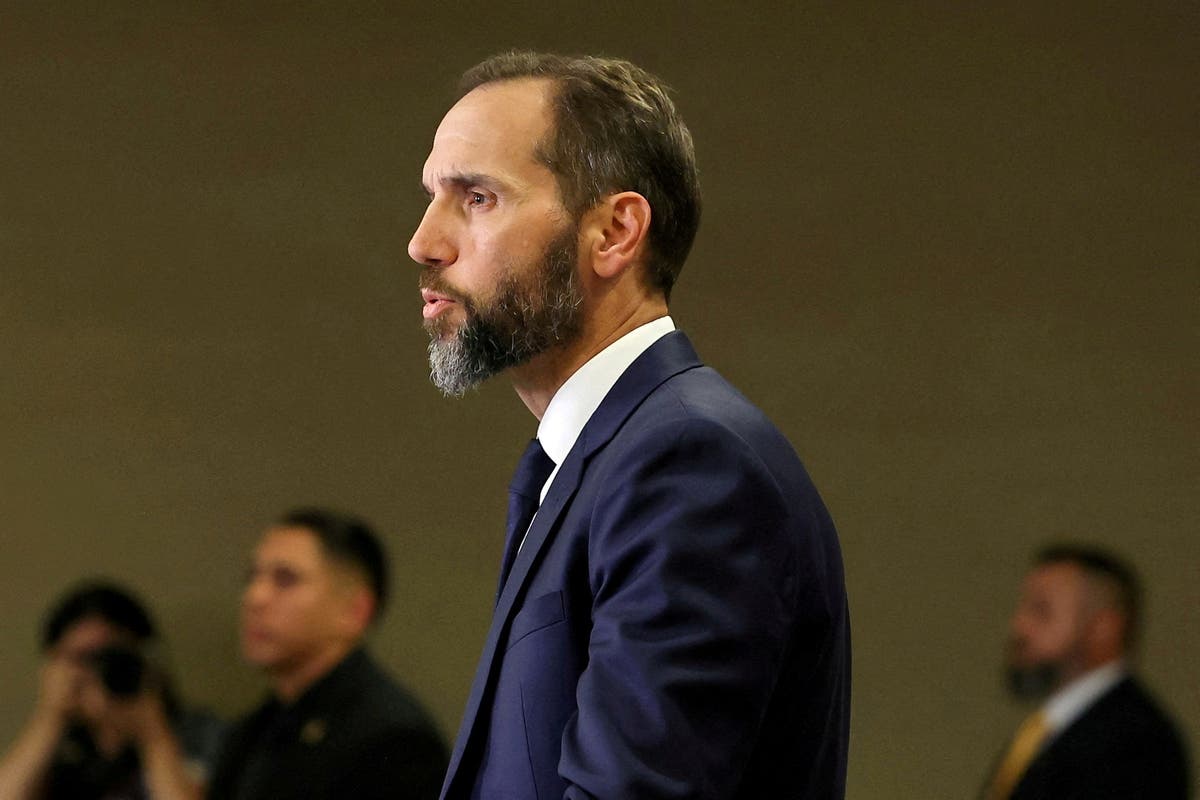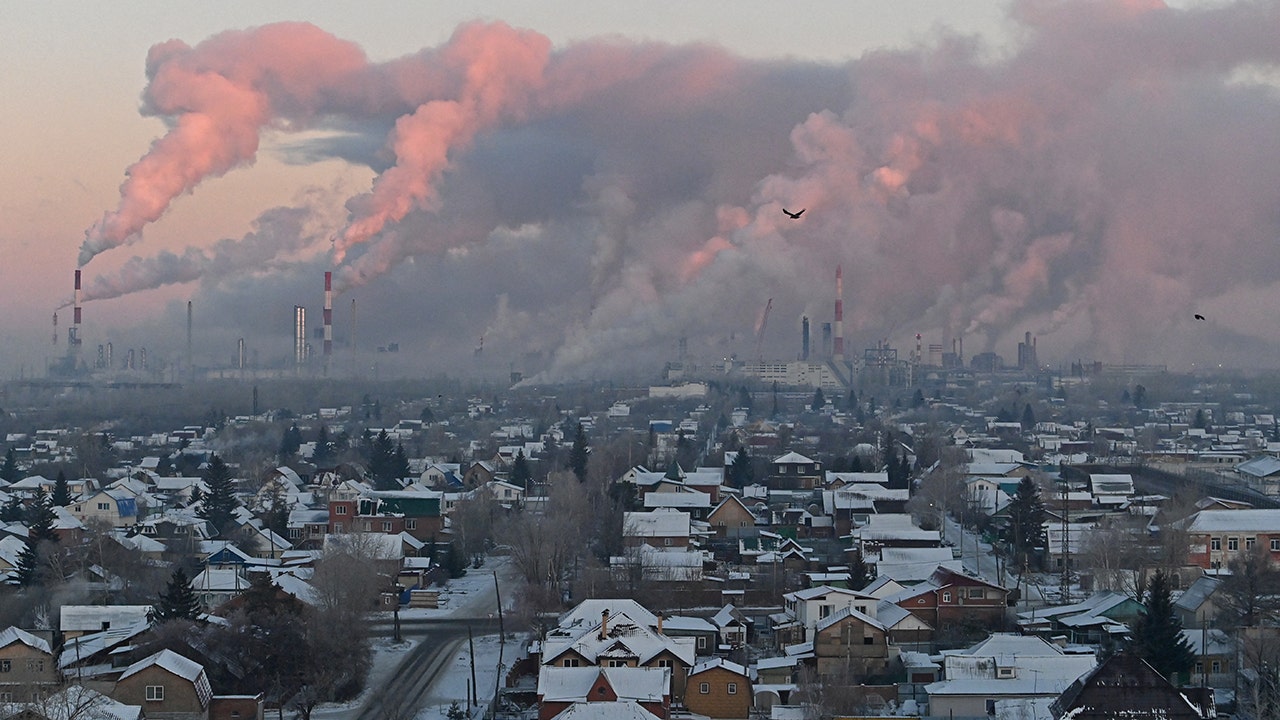World
Police raid president’s office as South Korea crisis deepens after failed martial law

“There isn’t a lot of precedent for this situation, and the relevant organs have not been transparent about this,” Rob York, director for regional affairs at Pacific Forum, a foreign policy research institute in Honolulu, said in an interview Wednesday.Yoon’s conservative People Power Party (PPP) says that once he resigns, a presidential by-election could be held by the spring. But the liberal opposition Democratic Party and much of the public are demanding that Yoon resign now or be impeached.
The next vote is set to be held Saturday around 5 p.m. local time (3 a.m. ET), a week after an earlier impeachment motion failed when PPP lawmakers boycotted the vote. Though the opposition controls parliament, it is eight seats short of the 200 it needs for the bill to pass.
“There are some people in the conservative party who are starting to come around, but whether or not they can get to 200 is very much an open question,” York said.
Ordered to ‘drag out
Details are still emerging about the events of Dec. 3-4, including the deployment of troops to the National Assembly in the South Korean capital, after Yoon declared martial law in a surprise late-night address.
Yoon’s special forces commander, Kwak Jong-geun told lawmakers Tuesday that Yoon had called him directly and told him to forcibly enter the National Assembly and “drag out” lawmakers who had fought their way in before they could vote to nullify his martial law declaration.
Kwak, who has since been suspended from duty, said he wasn’t sure how to carry out the order and ultimately decided not to.
“I judged that it wouldn’t be right because the operational troops could later face legal repercussions, and too many people could get injured if we forcibly broke in,” he told a televised hearing.
On Monday, Col. Kim Hyun-tae, who led the special forces at the National Assembly, said he took full responsibility for ordering their deployment.
Kim, commander of the 707th Special Mission Group, said the members of his unit were “deeply troubled and in pain” and that they were victims of the situation.
“The unit members bear no fault,” Kim said at a news conference outside the War Memorial of Korea in Seoul. “If there is any guilt, it lies only in following the orders of an inept commander.”
Lawmakers voted 210-63 Tuesday to appoint a special counsel to investigate the martial law declaration.
It is up to Yoon to confirm and appoint the special counsel and it was not immediately clear whether he would do that. If he does, the probe would supersede several others that have already begun.
The State Department said Monday that South Korean democracy had demonstrated resilience during the past few days of turmoil.
“What we expect going forward is that political disagreements continue to be resolved peacefully and in accordance with the rule of law,” spokesperson Matthew Miller told reporters.
He said the alliance between the United States and South Korea, which hosts almost 30,000 American troops, “remains ironclad.”
A spokesperson for the South Korean Ministry of National Defense also said Monday that there had been no disruption to the U.S.-South Korea alliance.
At the first impeachment vote Saturday, the atrium outside the legislative chamber was packed with opposition supporters who carried posters calling for Yoon’s resignation. They chanted and shouted as lawmakers filed into the chamber to vote.
Security had been tightened at the National Assembly, where there was still evidence of the troop deployment days earlier. Doors had big holes where they had been kicked in and furniture that had been stacked was toppled, and the area was blocked off with red and white tape saying “Danger.”
Impeachment wasn’t the only order of business. Lawmakers first voted on whether to appoint a special prosecutor to investigate Yoon’s wife, Kim Keon-hee, a motion that was narrowly rejected.
After that vote, the few members of Yoon’s party who had shown up walked out of the chamber. In the hallway, they were pursued by the gathered crowd, which effectively chased them into a nearby room. They flooded the corridor, shouting, “Go back in, go back in!” and didn’t allow them to leave the room for nearly an hour.
All but three members of Yoon’s party boycotted the vote, causing the motion to fail due to lack of quorum.
As it became clear that there were too few lawmakers to hold an impeachment vote, protesters outside grew agitated. Hundreds of police officers formed a ring around parts of the legislative grounds where protesters might be able to scale the fence.
“I don’t want Yoon Suk Yeol to be Korean president. He did such bad things,” protester Hang Min Jo, 28, told NBC News from outside the fence.
Janis Mackey Frayer and Stella Kim reported from Seoul and Jennifer Jett from Hong Kong.
If you or someone you know is in crisis, call the National Suicide Prevention Lifeline at 800-273-8255, text HOME to 741741 or visit SpeakingOfSuicide.com/resources for additional resources.








